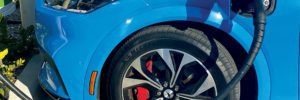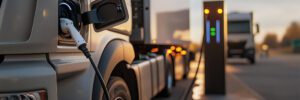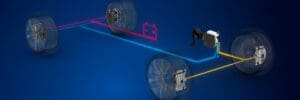The California Energy Commission (CEC) has launched a $30-million incentive project to bring fast EV charging stations to 30 counties in Eastern California, the Central Valley and the Central Coast. The Golden State Priority Project, part of the California Electric Vehicle Infrastructure Project (CALeVIP), is designed to provide access to fast charging stations in disadvantaged, low-income and tribal communities.
Businesses, nonprofits, public entities and tribes with project sites in these communities are eligible for funding. Rebates are available for purchasing and installing public DC fast chargers with at least 150 kW of power output. Applicants must install at least 4DC fast chargers per site and can receive funding for up to 20 per site. A 50% cost share is required.
The CEC’s Commissioner Patty Monahan said, “This new model is designed to deploy charging infrastructure swiftly and equitably to make sure every EV driver feels confident they can refuel, and that need is especially critical in rural, low-income and tribal communities.”
The Golden State Priority Project is an important step towards providing access to fast charging stations in disadvantaged, low-income and tribal communities. The CEC’s $30-million incentive project will help ensure that all EV drivers have access to the charging infrastructure they need to keep their vehicles running. This project will help reduce emissions and improve air quality in these communities, while also providing economic benefits to businesses, nonprofits, public entities and tribes.
FAQ
Q1: Are electric car batteries recyclable?
A1: Yes, electric car batteries are recyclable.
Q2: Are electric car chargers free?
A2: It depends on the charger and the location. Some electric car chargers are free, while others may require a fee.
Q3: Can electric car batteries be rebuilt?
A3: Yes, electric car batteries can be rebuilt with the right tools and knowledge.









